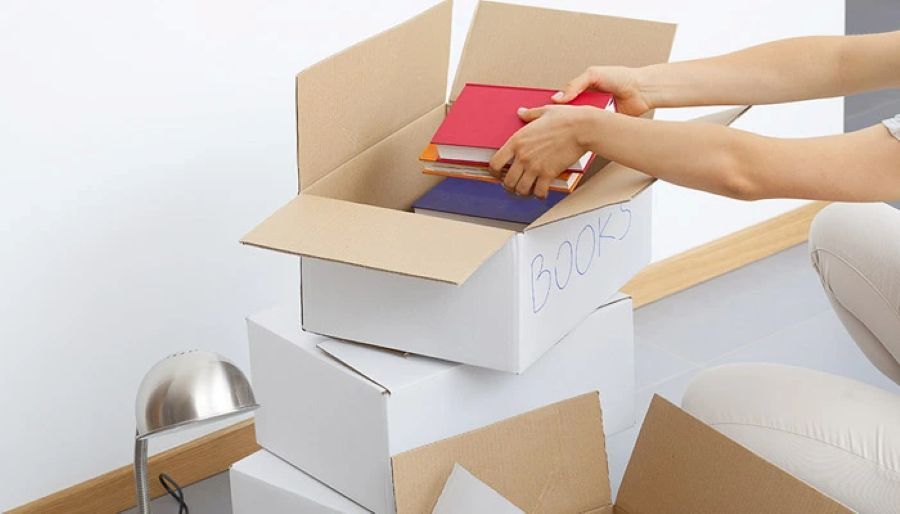What Do I Need to Know Before Moving to Alberta?
There are many important things you need to know before moving to Alberta, from understanding the province's cold winters and sunny summers to getting proper documentation and finding housing. Alberta offers lower living costs than BC or Ontario, no provincial sales tax, and strong job opportunities in healthcare, trades, and technology.
Why People Are Moving to Alberta
Alberta has become one of Canada's most popular provinces for newcomers. The province gets a really dry cold, and it's super sunny even in winter, so you don't have to contend with many mountains of grey slush and freezing cold rain. According to Travel Alberta, Alberta is the sunniest province in Canada, with over 312 sunny days each year.
The main reasons people choose Alberta include:
- Lower cost of living compared to BC and Ontario
- No provincial sales tax (only 5% GST)
- Strong job market with growing opportunities
- Beautiful mountain scenery and outdoor activities
- Friendly, welcoming communities
What Makes Alberta Different
Unlike other provinces, Alberta has built its economy on more than just oil and gas. Alberta's labour market looks a lot different now than it did five or 10 years ago. The province is now home to growing tech, healthcare, and service industries.
Cost of Living in Alberta
One of the biggest draws to Alberta is the affordable living costs. Average rent for a 1-bedroom apartment in Calgary (city centre): $1,850 and Average rent in Edmonton (city centre): $1,450. These prices are much lower than Vancouver or Toronto.
Housing Costs You Can Expect
The average home price in January 2025 was $503,078, but prices vary greatly by city:
- Calgary: Average home price around $600,000+
- Edmonton: More affordable at around $440,000
- Smaller towns: Often under $400,000
Monthly Living Expenses
A single person needs about $36,000 – $42,000 per year to live in Alberta, while a family of four needs around $70,000 – $80,000.
Here's what you can expect to spend monthly:
- Groceries: $400-$500 for one person
- Utilities: Around $194 per month
- Gas prices: ~$1.28/litre as of 2025
- Car insurance: ~$1,669 per year on average
No Provincial Sales Tax
Alberta is one of the few provinces with no provincial sales tax. Alberta also has no provincial sales tax (PST) – a financial advantage over most other provinces. You only pay the 5% federal GST, compared to 10-15% total sales tax in other provinces.
Alberta's Weather and Climate
Understanding Alberta's weather is crucial for your move. The province experiences four distinct seasons with some unique characteristics.
Winter Weather Facts
The temperatures during the winter can drop to as low as -30°C to -40°C, but don't let this scare you. The province also gets these weird weather patterns called "chinooks," where things will suddenly warm up, so it helps to break up the chilly temperatures.
Winter in Alberta typically includes:
- Very sunny days, even when cold
- Dry cold instead of wet, slushy conditions
- Chinook winds that bring sudden warm spells
- Snow from November through March
Summer and Other Seasons
Summer is a great time to visit Alberta. Get outside and make the most of warm, sunny days. The province enjoys:
- Warm, sunny summers (often 25-30°C)
- Beautiful fall colors, especially in the mountains
- Pleasant springs with gradually warming temperatures
- Calgary has more hours of sunshine than any other large city in Canada
Preparing for Alberta Weather
When moving to Alberta, pack:
- A good winter coat and boots
- Layers for temperature changes
- Sunglasses (it's very sunny year-round)
- Summer clothes for hot July and August days
Job Market and Employment Opportunities
Alberta's job market has changed significantly in recent years. Job postings in both of those occupations have increased at rates that outpace population growth each year — 16 per cent and 13 per cent, respectively for healthcare and trades.
High-Demand Jobs in 2025
According to Statistics Canada's latest labour market data, the most in-demand occupations include:
Healthcare Jobs:
- Registered nurses and registered psychiatric nurses
- Personal support workers
- Mental health professionals
- Medical technicians
Skilled Trades:
- Alberta's ongoing construction projects and renovations require more electricians
- Plumbers and pipefitters
- Heavy equipment operators
- Construction workers
Technology Roles:
- Software developers
- Information Systems Analysts
- Data analysts
- IT consultants
What Skills Employers Want
Nowadays, Alberta's job market requires more "middle skills." In other words, employers aren't necessarily looking for somebody fresh out of high school, but they're also not necessarily looking for somebody with a four-year degree or decades of experience in an industry.
Employers are looking for:
- Apprenticeship training or college certificates
- 2-3 years of relevant experience
- Tech skills, especially data analysis
- Strong communication abilities
Job Search Tips
To find work in Alberta:
- Use job sites like Indeed and LinkedIn
- Consider working with staffing agencies
- Network within your industry
- Look into government job programs for newcomers
If you're planning your move to Alberta and need professional help, consider working with experienced Edmonton movers who understand the logistics of relocating.
Taxes in Alberta
Alberta offers one of the best tax situations in Canada, which helps your money go further.
Personal Income Tax
According to the Government of Alberta's official budget announcement, the budget announces a new 8% personal income tax bracket for income up to $60,000, effective January 1, 2025, providing a tax savings of up to about $750 for all individual taxpayers in 2025.
Alberta's income tax brackets for 2025:
- 8% on the first $60,000
- 10% on income from $60,000 to $151,234
- 12% on income from $151,234 to $214,369
- 13% on income from $214,369 to $306,324
- 14% on income from $306,324 to $521,391
- 15% on income over $521,391
Other Tax Benefits
Alberta is one of the best provinces for taxes in Canada. For starters, it has no sales tax, no payroll tax, and no health premium.
Additional tax advantages:
- No provincial sales tax (saves thousands per year)
- Low corporate tax rates (8% general rate)
- No payroll tax for employers
- Various tax credits for families and individuals
Essential Paperwork and Documentation
Moving to Alberta requires several important steps to get your paperwork in order.
Driver's License Requirements
Newcomers must exchange their current driver's license for an Alberta license beyond 90 days. You'll need to get an Alberta driver's license within 90 days of moving to the province. If you have a BC driver's license, you can exchange it for an Alberta one without having to retake the road test.
Steps to get your Alberta driver's license:
- Visit a registry agent office within 90 days
- Bring your current license and identification
- Provide proof of Alberta address
- Pay the required fees
Health Care Registration
As outlined by the Government of Alberta's health services, when you first move to Alberta, you'll want to apply for the Alberta Health Care Insurance Plan (AHCIP). It's straightforward and an essential step for the safety and well-being of you and your family.
To register for AHCIP:
- Download the registration form online
- Take it to your nearest registry office
- Your health card will be ready for you in about five days
- Just as it is in all of Canada, Canadian healthcare in Alberta is socialized, and therefore it is free
Vehicle Registration
You'll also need to register your vehicle in Alberta within 90 days of moving. This includes:
- Getting Alberta license plates
- Updating your vehicle insurance
- Providing proof of ownership
- Paying registration fees
Banking and Financial Setup
Upon arriving in Alberta, it is crucial to set up a bank or credit union account for security and financial needs.
Major banks in Alberta include:
- Royal Bank of Canada (RBC)
- TD Canada Trust
- Bank of Montreal (BMO)
- Scotiabank
- CIBC
Many banks allow you to set up an account before you arrive in Canada.
Housing and Neighborhoods
Finding the right place to live is one of your biggest decisions when moving to Alberta.
Major Cities to Consider
Calgary:
- Largest city in Alberta (1.6+ million people)
- Strong job market and economy
- Higher housing costs but more opportunities
- Close to the Rocky Mountains
- Homes in Okotoks and Airdrie, for example, average in the mid-$600s
Edmonton:
- Provincial capital
- More affordable housing
- Edmonton's homes are much more affordable, with an average price of around $440,000
- Known as Canada's "Festival City," Edmonton is host to more than 50 festivals each year
Smaller Cities and Towns:
- Red Deer, Lethbridge, Medicine Hat
- Much lower housing costs
- Smaller job markets
- Close-knit communities
What to Look For in Housing
When house-hunting in Alberta, consider:
- Proximity to work and transportation
- School districts (if you have children)
- Access to amenities and services
- Neighborhood safety and community feel
- Winter accessibility and snow removal
If you're moving within Alberta, our local movers can help make your transition smooth and stress-free.
Education System
Alberta has an excellent education system that's consistently ranked among Canada's best.
Public School System
According to Government of Canada education statistics, children of newcomers to Alberta will enter the provincial education system at the age of six. Mandatory education continues until graduation from high school. From kindergarten to high school, Alberta residents can enjoy free education through the public school system.
Key facts about Alberta schools:
- Free education from kindergarten through grade 12
- High academic standards
- Various program options (regular, alternative, specialized)
- Strong support for newcomer students
Post-Secondary Education
Alberta offers over 150 Designated Learning Institutions (DLIs) for newcomers to Canada. The province is home to:
- University of Alberta (Edmonton)
- University of Calgary
- Mount Royal University
- SAIT (Southern Alberta Institute of Technology)
- NAIT (Northern Alberta Institute of Technology)
Transportation Options
Getting around Alberta depends largely on where you live and work.
Public Transportation
At least 71% of residents in each of Alberta's three largest CMAs live less than 500 meters from a "public transit access point".
Calgary Transit:
- Calgary Transit monthly adult pass: $118
- C-Train light rail system
- Extensive bus network
- Over 40,600 people use some form of public transportation to move around the city
Edmonton Transit:
- LRT (Light Rail Transit) system
- Comprehensive bus routes
- This number is over 33,000 in Edmonton for daily transit users
Driving in Alberta
Most residents of Alberta's three biggest CMAs continue to use a car, van or truck as their main form of commuting. Outside major cities, a vehicle is almost essential.
Benefits of having a car:
- Access to outdoor recreation areas
- Easier grocery shopping and errands
- Ability to explore the province
- Winter driving capability
Healthcare System
Alberta's healthcare system is publicly funded and provides excellent care.
What's Covered
AHCIP, which stands for Alberta Health Care Insurance Plan. It's a program that helps eligible residents get essential medical services. However, it doesn't cover things like dental care, alternative treatments, or hearing aids.
AHCIP covers:
- Doctor visits and hospital care
- Emergency services
- Specialist consultations
- Diagnostic tests and X-rays
- Surgery and medical procedures
What's Not Covered
You may need additional insurance for:
- Dental care
- Vision care (glasses, contacts)
- Prescription medications
- Physiotherapy
- Chiropractic care
Finding Healthcare Providers
- Most family doctors accept new patients
- Walk-in clinics are available
- Hospital emergency rooms for urgent care
- Online directory to find specialists
Culture and Lifestyle
Alberta offers a unique blend of urban sophistication and outdoor adventure.
What Albertans Are Like
If you're moving from BC to Alberta, you'll be pleasantly surprised by the friendliness of the people. Albertans are known for being down-to-earth and hospitable, and you're sure to make some great friends in your new home.
Common traits you'll notice:
- Friendly and welcoming to newcomers
- Direct communication style
- Strong work ethic
- Love of outdoor activities
- Community-minded
Outdoor Activities and Recreation
Alberta is perfect for outdoor enthusiasts:
Winter Activities:
- World-class skiing and snowboarding
- Ice hockey and skating
- Cross-country skiing
- Snowshoeing and winter hiking
Summer Activities:
- Hiking in the Rocky Mountains
- Camping and fishing
- Mountain biking
- Festivals and outdoor concerts
Urban Amenities
Both Calgary and Edmonton offer:
- Professional sports teams
- Vibrant arts and culture scenes
- Excellent restaurants and nightlife
- Shopping and entertainment districts
- Museums and galleries
Common Challenges and How to Overcome Them
Every move comes with challenges. Here are the most common ones newcomers to Alberta face and how to handle them.
Winter Adjustment
Many new residents struggle with Alberta's cold winters. If you're able to stock up on winter gear and buy a decent coat, winters are manageable.
Tips for winter success:
- Invest in quality winter clothing
- Learn to enjoy winter activities
- Use a remote car starter
- Keep emergency supplies in your vehicle
- Embrace the sunny winter days
Finding Your Community
Moving to a new province can feel lonely at first. Ways to build connections:
- Join community groups or sports leagues
- Volunteer for local organizations
- Attend neighborhood events
- Connect with coworkers outside of work
- Use apps like Meetup to find like-minded people
Job Market Competition
While Alberta has good job opportunities, competition can be fierce in some fields.
Strategies for job hunting success:
- Tailor your resume for the Alberta market
- Network actively in your industry
- Consider contract or temporary work initially
- Be open to different locations within the province
- Highlight any oil and gas or resource sector experience
For a smooth transition to your new Alberta home, consider professional packing services to ensure your belongings arrive safely.
Special Programs and Incentives
Alberta offers several programs to help newcomers settle successfully.
Settlement Services
Alberta's provincial government offers settlement services to newcomers that includes resources that can be accessed here. These services include pre-arrival resources, and community, childcare and language support.
Available programs include:
- Language training classes
- Employment assistance programs
- Community orientation sessions
- Childcare support for working parents
Financial Incentives
Eligible skilled tradespeople can apply for a $5,000 bonus to help offset the cost of moving to Alberta.
Other potential benefits:
- Alberta Child and Family Benefit
- Low-cost childcare programs
- First-time homebuyer programs
- Education tax credits
Immigration Programs
Alberta has specific immigration programs:
- Alberta Advantage Immigration Program
- Provincial Nominee Program
- Express Entry streams
Planning Your Move Timeline
A successful move to Alberta requires careful planning. Here's a suggested timeline:
3-6 Months Before Moving
- Research neighborhoods and housing options
- Apply for jobs or transfer requests
- Start gathering important documents
- Research schools if you have children
- You should begin your address changing process at least 2 weeks before your move to Alberta
1-3 Months Before Moving
- Secure housing (rent or purchase)
- Book moving services
- Arrange temporary accommodation if needed
- Start changing your address with important organizations
- Research healthcare providers in your new area
1 Month Before Moving
- Finalize all moving arrangements
- Pack non-essential items
- Arrange time off work for the move
- Confirm utility connections
- Plan your travel route
First Week After Arriving
- Apply for Alberta driver's license
- Register for AHCIP health coverage
- Open bank accounts
- Register vehicle and get insurance
- Connect utilities and services
For professional moving assistance during your transition, our long-distance moving company specializes in helping families relocate to Alberta.
Final Thoughts
Moving to Alberta can be one of the best decisions you make. The province offers an excellent quality of life with affordable living costs, no provincial sales tax, strong job opportunities, and some of Canada's most beautiful scenery. While the winters are cold, they're also sunny and dry, and the warm, friendly people make it easy to feel at home.
The key to a successful move is planning ahead and understanding what to expect. From getting your paperwork in order to finding the right neighborhood, taking time to prepare will make your transition much smoother.
Alberta truly offers something for everyone, whether you're drawn by career opportunities, lower costs, outdoor adventures, or simply a chance for a fresh start. With proper planning and the right mindset, your move to Alberta can be the beginning of an exciting new chapter.
Ready to make your move to Alberta? Contact Last Stop Moving for professional, reliable moving services that will help make your transition stress-free and successful.



